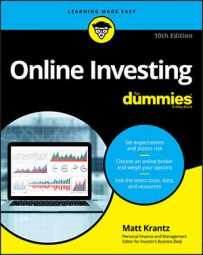- Locking down your computer.
You’ll want to make sure your computer is running antivirus software, which protects your files from malicious code, at the very least. Most modern operating systems — including Windows 10 — come with antivirus software installed. Make sure these security features are turned on. Windows 10 also comes with a firewall that you should also make sure is activated. A firewall puts a fence around your computer, letting you control what data comes in and what goes out.
- Be extra careful of wireless connections.
If you’re online using a public wireless Internet connection, you need to be especially cautious.
- Checking up on your brokerage.
Before you give money to anyone, be sure to run the broker or brokerage firm through the Financial Industry Regulatory Authority’s BrokerCheck. This simple search will only take a few moments and will tell you if the broker or brokerage firm is permitted to sell you securities.
- Knowing what’s reasonable.
You should have a grasp of what kind of returns you can expect from investments. You can get this knowledge by reading Chapter 1. At the very least, know that U.S. stocks roughly generate 10 percent returns, a year, on average. Knowing what legitimate investments return will help you smell a scam a mile away. If someone promises “guaranteed” or “risk free” returns that exceed the return of stocks, or 10 percent, you know you’re most likely being lied to.
- Getting familiar with regulators’ resources.
The Securities and Exchange Commission offers free and tremendously helpful tools and tips to investors. Taking the time to check out the site will make you a much more informed investor. The North American Securities Administrators Association puts you in touch with your state regulator in two clicks. Just click the Contact Your Regulator option on the menu bar and then click your state in the list that appears.

